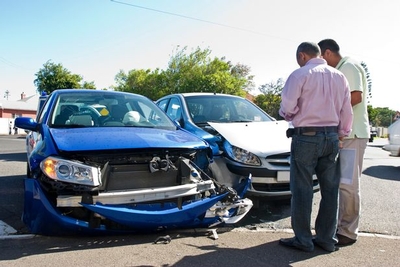The Silent Consequence: Traumatic Brain Injuries in Car Crashes
Related Attorney: Timothy E. Dinan
January 26, 2024
In the aftermath of a car crash, the physical toll on the human body can extend beyond visible injuries. One particularly concerning and often hidden consequence is traumatic brain injury (TBI). Understanding how a person in a car crash can suffer a TBI sheds light on the profound impact such incidents can have on the intricate organ that governs our every function—the brain.
1.Direct Impact on the Head:
A primary cause of traumatic brain injuries in car crashes is a direct impact on the head. When a collision occurs, the abrupt stop or change in direction can propel the occupants forward, causing their heads to collide with the dashboard, windshield or steering wheel. This impact can lead to contusions, concussions or more severe brain injuries.
2. Acceleration-Deceleration Forces:
The physics of a car crash involve rapid changes in motion—acceleration followed by sudden deceleration. These forces can subject the brain to intense movement within the skull. This phenomenon, known as coup-contrecoup, results in the brain striking the interior of the skull at the site of impact and then rebounding to collide with the opposite side, causing widespread damage.
3. Penetration Injuries:
In some car accidents, objects may penetrate the skull, directly impacting the brain. This can include shattered glass, projectiles or other debris. Penetration injuries pose an immediate and severe threat to the brain's delicate structure, often resulting in extensive damage.
4.Whiplash and Rotational Forces:
Whiplash, a common occurrence in rear-end collisions, involves a rapid back-and-forth motion of the head and neck. This movement, combined with rotational forces, can strain and damage the brain's delicate tissues. The brain, suspended in cerebrospinal fluid, may experience shearing forces, leading to diffuse axonal injuries—a serious form of TBI.
What happens to the brain in these situations is a complex interplay of physical forces and biological responses. The brain, encased in the skull, may swell, bleed or suffer structural damage, leading to a range of symptoms from mild cognitive impairment to severe and life-altering consequences.
In conclusion, traumatic brain injuries resulting from car crashes underscore the importance of understanding the various mechanisms at play. Recognizing these factors not only enhances our comprehension of the consequences but also emphasizes the critical need for preventive measures and advanced safety features to mitigate the risk of TBIs in vehicular accidents.
Questions? Contact Tim Dinan at tdinan@lcrlaw.com, or (973) 729-1880.
See our previous blog post here.


















